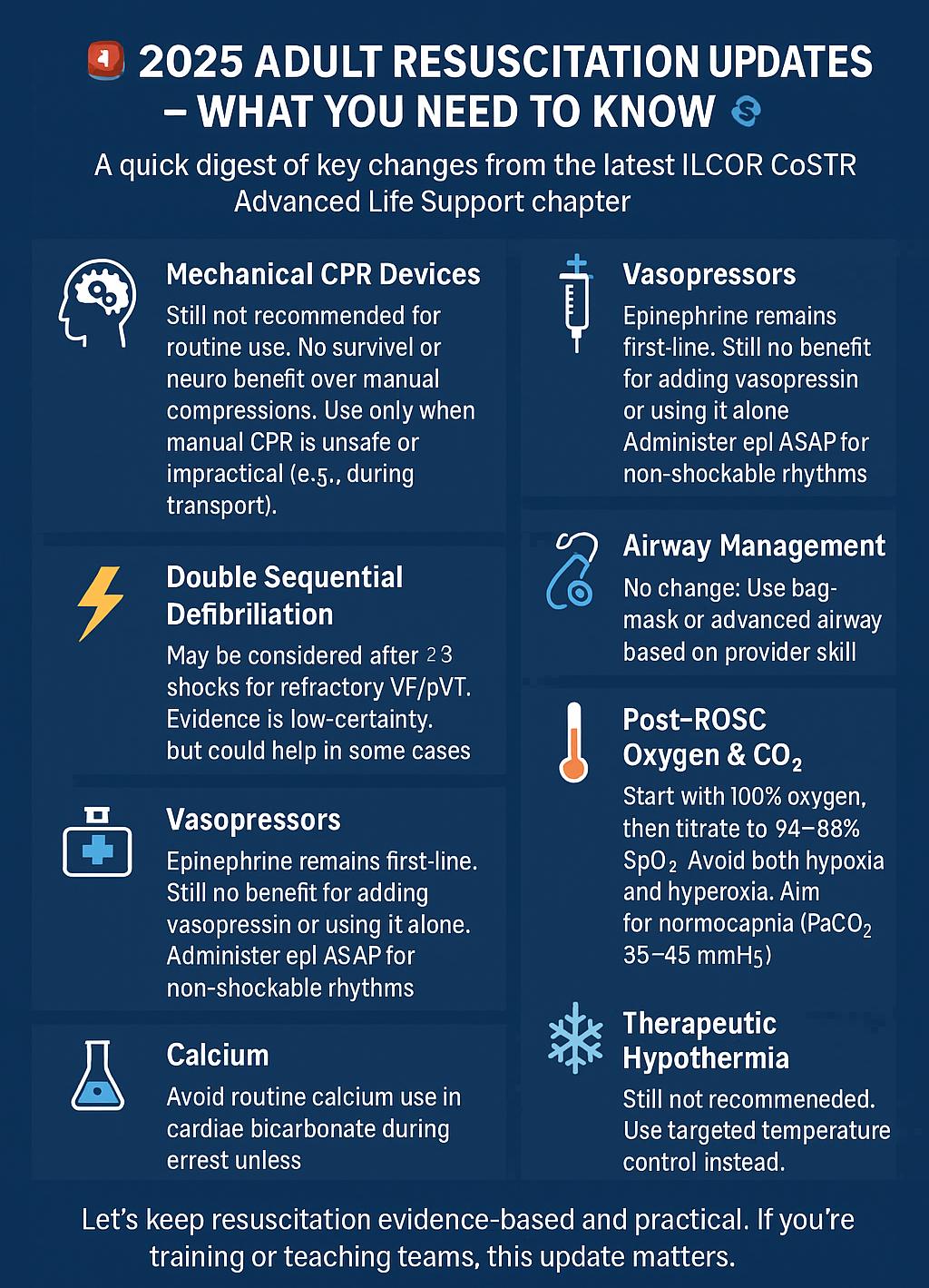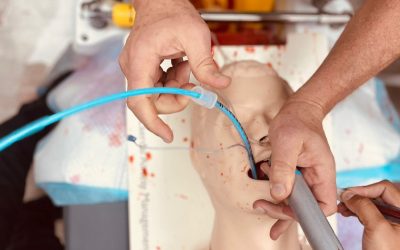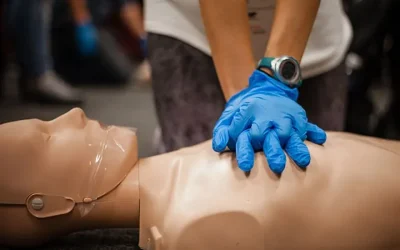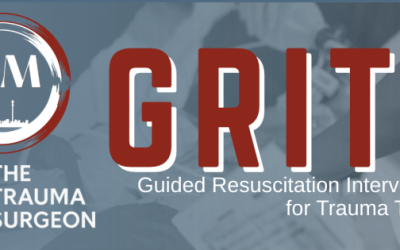Author: Kaleb Lachenicht, Director Epic EM and Chief Clinical Officer of ROCKET
A quick digest of key changes from the latest ILCOR CoSTR Advanced Life Support chapter – the guidelines are often difficult to read and digest, here is a quick hits summary of the info you would need to change practice.
🧠 Mechanical CPR Devices
Still not recommended for routine use. No survival or neuro benefit over manual compressions. Use only when manual CPR is unsafe or impractical (e.g., during transport).
💉 IV vs IO Access
IV access is preferred for initial drug administration. IO is acceptable if IV can’t be established after 2 attempts. IO access may reduce ROSC rates.
⚡ Double Sequential Defibrillation
May be considered after ≥3 shocks for refractory VF/pVT. Evidence is low-certainty, but could help in some cases.
💊 Vasopressors
Epinephrine remains first-line.
Still no benefit for adding vasopressin or using it alone. Administer epi ASAP for non-shockable rhythms.
📦 Buffering Agents
No role for routine use of sodium bicarbonate during arrest unless specific indications (e.g. TCA overdose or hyperK+).
🧪 Calcium
Avoid routine calcium use in cardiac arrest—no benefit shown.
🫁 Airway Management
No change: Use bag-mask or advanced airway based on provider skill.
SGAs are fine, especially where intubation success is low.
🧬 Ultrasound During CPR
Routine use for prognosis or diagnosis not recommended. Use only if it won’t interrupt CPR and done by trained personnel.
Post Arrest Considerations
🌡️ Post-ROSC Oxygen & CO₂
Start with 100% oxygen, then titrate to 94–98% SpO₂.
Avoid both hypoxia and hyperoxia. Aim for normocapnia (PaCO₂ 35–45 mmHg).
🧊 Therapeutic Hypothermia
Still not recommended. Use targeted temperature control instead. No benefit in pushing to 33°C.
🧬 Neuroprotection & Steroids
Still no proven role for neuroprotective drugs or routine steroid use during cardiac arrest.💡 Key Takeaway: Focus on doing the basics well: high-quality CPR, timely defib, appropriate drugs. New tools are only helpful when they don’t interrupt core resus actions.
Let’s keep resuscitation evidence-based and practical. If you’re training or teaching teams, this update matters.
Reference:
Drennan, I.R., Berg, K.M., Böttiger, B.W., Chia, Y.W., Couper, K., Crow, C., D’Arrigo, S., Deakin, C., Fernando, S.M., Garg, R., et al., 2025. 2025 International Liaison Committee on Resuscitation (ILCOR) Consensus on Science With Treatment Recommendations: Advanced Life Support. International Liaison Committee on Resuscitation (ILCOR), American Heart Association, and European Resuscitation Council.





